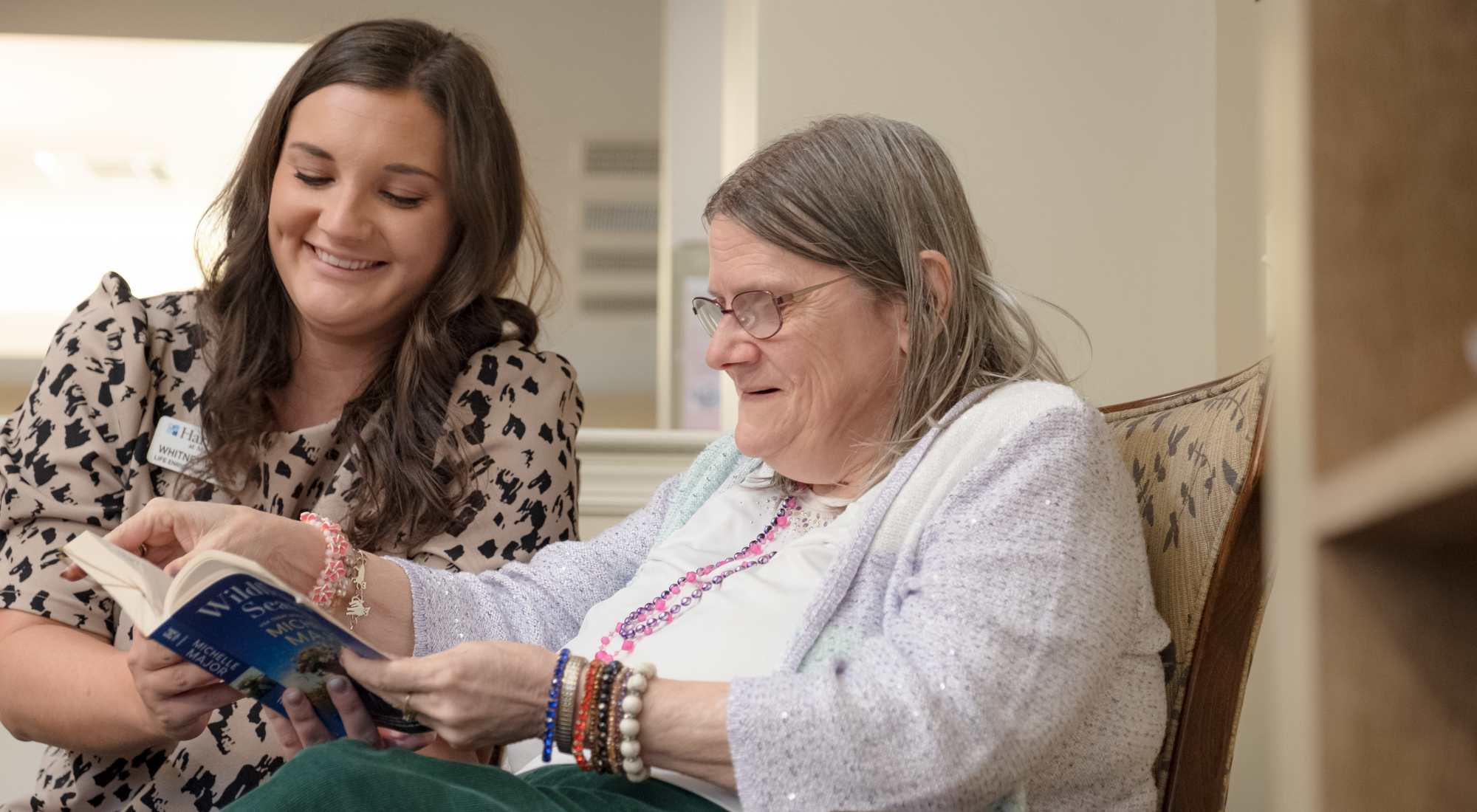What Sets Small Memory Carehomes Charlotte Ahead from Larger Facilities
All Concerning Memory Treatment Solutions: Why Tiny Memory Care Houses Are a Fantastic Selection
Memory treatment services play a necessary duty in sustaining people with Alzheimer's and mental deterioration. Small memory treatment homes stick out for their individualized strategy and intimate setup. With reduced staff-to-resident proportions, these homes foster stronger links and customized treatment. Citizens take advantage of enhanced social communications and a secure environment. As family members check out choices, understanding the special benefits of tiny memory treatment homes ends up being crucial. What elements should be taken into consideration when selecting the appropriate home?
Comprehending Memory Treatment Provider
While many may recognize with general senior care options, recognizing memory treatment services is necessary for families facing the challenges of cognitive decline. Memory care especially deals with individuals with problems such as Alzheimer's illness and other forms of dementia. These solutions provide an organized atmosphere that concentrates on enhancing the lifestyle for homeowners through specialized care and support.Memory care facilities are developed to guarantee security and safety, usually featuring secured settings to stop roaming. Educated team participants are readily available all the time to help with everyday tasks, medication monitoring, and individual treatment. In addition, memory treatment programs typically include cognitive stimulation activities, customized to involve locals and advertise mental health. Family members can gain from understanding these solutions, as they allow informed decisions regarding their enjoyed ones' treatment, making sure that their details requirements and choices are resolved in a encouraging and compassionate fashion.
The Advantages of Little Memory Care Houses
Tiny memory treatment homes offer unique advantages that can significantly boost the lifestyle for residents with cognitive disabilities. One considerable advantage is the intimate environment, which enables tailored communications among staff and locals. This smaller setup cultivates meaningful connections, reducing feelings of seclusion and stress and anxiety often experienced by individuals with memory issues.Additionally, the lower staff-to-resident proportion in little memory treatment homes allows caretakers to give even more conscientious guidance and assistance. This approach not only enhances safety yet also promotes a complacency for the residents.Moreover, little memory treatment homes can adjust rapidly to the unique requirements and choices of each homeowner, enabling for a much more homelike environment. Such an atmosphere can urge social engagement and participation in tasks, ultimately enhancing the day-to-day experiences of those dealing with cognitive disabilities.
Personalized Care Program for Homeowners
Customized care strategies are important in memory care homes, as they deal with the unique demands and choices of each citizen. These plans start with complete assessments carried out by competent specialists, who evaluate cognitive capacities, case history, and personal interests. This customized strategy assurances that care is not only effective yet also considerate of each individual's self-respect and autonomy.Moreover, personalized care plans are adaptable, permitting changes as citizens' needs advance over time. This adaptability promotes a feeling of protection and experience, which is crucial for individuals dealing with memory obstacles. Caretakers are trained to carry out these plans continually, offering assistance that aligns with the locals' routines and preferences.Ultimately, personalized care plans enhance the quality of life for homeowners by advertising wellness, involvement, and self-reliance, making them a fundamental facet of memory treatment solutions in little memory treatment homes.
Developing a Home-Like Environment
Producing a home-like environment is critical for promoting comfort and familiarity in memory treatment setups, as it substantially affects citizens' psychological well-being. Small memory care homes commonly focus on individualized touches, such as cozy shade combinations, family members photos, and familiar furnishings setups, which help locals feel much more comfortable. Integrating elements evocative a conventional home, like comfy home and public areas, motivates a sense of belonging.Moreover, using all-natural light and outdoor rooms can boost the environment, promoting relaxation and serenity. Employee play a substantial function in preserving this environment by engaging with locals in a compassionate manner, treating them like family members. Regular activities, such as food preparation or horticulture, can also add to a home-like feel, offering opportunities for citizens to join significant experiences. In general, creating a supporting setting supports cognitive function and emotional security, making it a vital aspect of memory care solutions.
Boosted Social Communication and Community
Boosted social communication and area are essential parts of memory care solutions. By cultivating individualized social involvement and developing a family-like environment, these services advertise meaningful connections amongst citizens. Group events and activities better encourage engagement, assisting people feel much more included and sustained.
Individualized Social Involvement
While social interaction is important for general wellness, lots of individuals with memory impairments typically struggle to involve meaningfully with others. Personalized social involvement in memory treatment homes addresses this obstacle by producing customized tasks that provide to citizens' one-of-a-kind interests and abilities. By concentrating on specific choices, caretakers can foster links that resonate deeply with each person. Activities such as art therapy, songs sessions, and assisted conversations advertise cognitive stimulation and emotional expression. Furthermore, little group settings encourage friendship and enable for more intimate communications, boosting feelings of belonging. This method not only deals with feelings of isolation however additionally equips citizens to keep a sense of identification, ultimately contributing to improved mental wellness and high quality of life.
Family-like Ambience
In a memory care setup, fostering a family-like atmosphere significantly enhances social communication and constructs a feeling of community among citizens. Smaller memory treatment homes often prioritize intimate settings, allowing locals to develop closer links with one an additional and staff members. This nurturing ambience promotes trust, which is crucial for people with memory problems. Locals are more probable to talk and share experiences, creating a helpful network that alleviates sensations of loneliness. The familiarity of shared spaces and regimens adds to a feeling of belonging, website here additionally encouraging social communication (personalized memory care). In such settings, emotional bonds grow, bring about enhanced total wellness and a greater high quality of life for homeowners as they browse their everyday experiences together
Group Activities and Occasions

Safety and Safety Functions in Small Houses
Many small homes designed for memory care incorporate necessary security and protection attributes to guarantee the wellness of citizens. These homes typically make use of safe and secure entry and exit indicate prevent roaming, a common worry amongst individuals with memory disabilities. In addition, security systems and alarm systems boost monitoring, making sure that staff can without delay react to any kind of unusual activities.Interior layouts are customized for safety and security, with decreased risks such as clutter-free paths and sharp edges. Handrails and non-slip flooring are commonly set up to reduce the danger of falls. Team members are learnt emergency situation protocols, guaranteeing they are planned for different situations.Moreover, individualized care plans may include analysis of private security demands, offering tailored options for every resident. On the whole, these safety and protection functions create a nurturing environment where residents can prosper while preserving their dignity and self-reliance.
Exactly how to Choose the Right Memory Treatment Home
Just how can family members guarantee they choose one of the most ideal memory treatment home for their enjoyed ones? The choice needs mindful consideration of several aspects. Initially, households ought to assess the center's team certifications and training, guaranteeing that caretakers are experienced in taking care of memory-related conditions. Next, it's crucial to analyze the home's environment, concentrating on safety and security features and whether it fosters a feeling of area and belonging. Seeing the center can provide understanding into daily tasks click to find out more and the social ambience, which are necessary for psychological excitement and psychological health. In addition, households ought to ask about the care strategies used, ensuring they are tailored to private requirements. Ultimately, considering the home's area and accessibility for family visits can contribute to a smoother change. By attending to these aspects, households can make an educated decision that prioritizes their liked one's convenience and lifestyle in a memory care setup.
Often Asked Inquiries
What Qualifications Should Personnel Members in Memory Care Residences Have?
Personnel in memory care homes should have appropriate accreditations, experience in dementia treatment, strong communication skills, and concern. discover this info here Continuous training in behavioral monitoring and restorative interventions enhances their capability to sustain citizens efficiently.
Just How Do Memory Care Solutions Differ From Conventional Assisted Living?
Memory treatment services focus specifically on individuals with memory problems, supplying customized assistance and organized settings. On the other hand, conventional assisted living supplies basic assistance with everyday tasks, doing not have the tailored technique needed for those with cognitive difficulties.
What Types of Activities Are Used in Memory Care Homes?
Memory care homes usually supply a variety of tasks developed to involve locals. Typical alternatives include art treatment, songs sessions, cognitive games, workouts, horticulture, and social occasions, all targeted at enhancing wellness and cognitive function.
Can Locals Bring Their Own Valuables to Memory Treatment Homes?
Residents can typically bring their own belongings to memory care homes, enabling them to individualize their home - personalized memory care. This method assists produce a familiar setting, promoting convenience and a sense of identity for the people

Just How Are Family Participants Involved in the Care Refine?
Member of the family play an important duty in the care procedure, frequently joining decision-making, going to treatment meetings, and providing psychological assistance. Their participation promotes a collaborative atmosphere, improving the resident's total wellness and lifestyle. While several might be acquainted with general elderly treatment choices, understanding memory care solutions is vital for households facing the difficulties of cognitive decline. These solutions provide an organized environment that concentrates on improving the high quality of life for homeowners with specialized treatment and support.Memory care facilities are made to guarantee safety and safety and security, typically including secured atmospheres to prevent straying. Personalized treatment plans are essential in memory care homes, as they cater to the distinct demands and preferences of each homeowner. Staff members in memory treatment homes should possess pertinent certifications, experience in mental deterioration care, strong communication skills, and concern. Memory care solutions concentrate especially on individuals with memory problems, supplying specific support and structured settings.